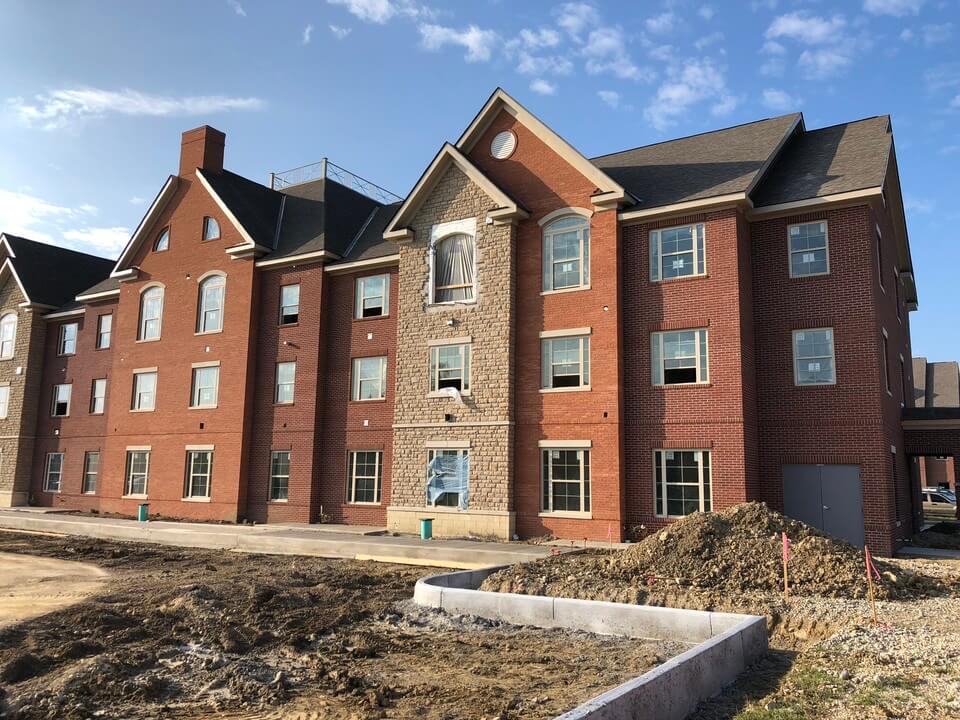Corna-Kokosing Closes in on Completion at Avondale Woods
Posted by Matt Milos on Sep 26th 2018
 One of the parts of my job that I enjoy most is working with forward-thinking companies that not only have the interest of their company in mind, but also care about what is best for the owner of the project. Corna-Kokosing showed these qualities while working on their Avondale Woods project.
One of the parts of my job that I enjoy most is working with forward-thinking companies that not only have the interest of their company in mind, but also care about what is best for the owner of the project. Corna-Kokosing showed these qualities while working on their Avondale Woods project.
A retirement village on the outskirts of Columbus, Avondale Woods was growing.
Along with a three-story addition to the assisted living building the complex would receive seven individual cottages split into three separate living units each. As a negotiated project, the owner opted to take on winter conditions themselves.
Traditional direct and indirect fired heating methods are very often inefficient and add unhelpful moisture to the job-site. Hydronic heating systems, on the other hand, recirculate air and operate like a permanently installed system.
These systems are still new and unfamiliar to many in the industry, however, so most settle for the familiar-but-inefficient method. Luckily for Avondale, the folks at Corna-Kokosing understood the benefits of hydronic technology. By removing rather than adding moisture like traditional methods, the system both saves money and creates a better work environment. The team presented the rental and projected fuel costs for both our hydronic system and a competing indirect fired system to help the owner make an educated decision. Unfamiliar with the high fuel cost of indirect fired heating, the owner decided to split the project: Phipps would hydronically heat the 28,200 square foot building, while indirect-fired units would heat the cottages.
As an unexpectedly cold winter progressed, the benefits of the hydronic system became clear.
Despite a higher cost up-front, the system operates on a maximum of 3 gallons of diesel per hour, clearly the less costly option. Though Derek was not surprised at this, the owner was shocked at the increasing cost of heating the buildings. He demanded a total cost breakdown including the electrical operating cost per month of the PowerHeat 300 system.
The PowerHeat 300 system required only one 20amp 110v circuit, while the exchangers inside required only 1.8amps each. The numbers calculate out to only $0.22 per hour of electricity. Combine this with a fuel cost of $5.63 per hour for a total cost of $5.85 per hour. The hydronic climate control system proved it is simply the lowest cost operating system on the market today.
We want to wish the entire Corna-Kokosing Avondale Woods team congratulations on a job well done! Thank you for seeking the owner's best interest and trusting us to provide your project with heat this winter season.





